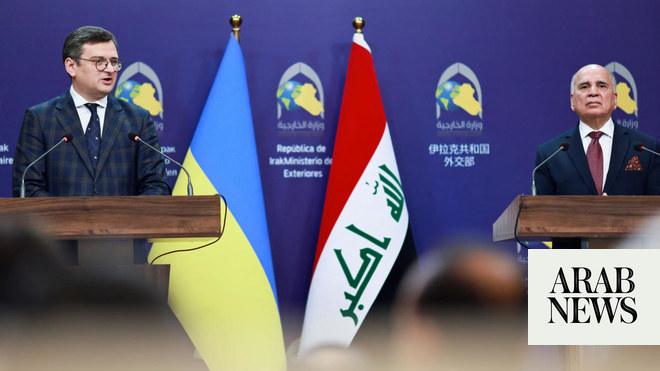
Pakistan foreign minister says will call OIC meeting in September
KARACHI: Pakistan’s foreign minister on Friday told Arab News that US President Donald Trump had said his offer to mediate between New Delhi and Islamabad on the Kashmir conflict “still stands” despite the Indian prime minister’s insistence that the issue is bilateral.
Tensions between India and Pakistan have escalated since Aug. 5, when New Delhi revoked the constitutional autonomy of the part of Kashmir that it administers, and moved to quell objections by shutting down communications and clamping down on local leaders.
Pakistan has reacted with fury to New Delhi’s decision, cutting trade and transport ties and expelling India’s ambassador. Both countries claim Kashmir in full but rule it in part.
Trump has previously offered to mediate between India and Pakistan on Kashmir, a mountainous region that has been the source of repeated confrontations between the two nuclear-armed neighbors since they gained independence from British colonial rule in 1947.
This week, he revised his statement and said India and Pakistan could handle the dispute on their own.
But Pakistani Foreign Minister Shah Mahmood Qureshi quoted Trump as saying in response to India’s insistence that the issue is bilateral: “This has been going on for decades. Why was this not resolved? But fine, if you (India and Pakistan) can go ahead and do it yourselves, it’s OK with me. But my offer (to mediate) still stands.”
Qureshi did not specify if Trump had communicated this to him directly. Arab News could not independently verify the foreign minister’s statement.
Qureshi said India’s revocation of Kashmir’s special status, sparking tensions with Islamabad, had “distracted” from negotiations between the US and the Taliban to end the 18-year war in Afghanistan.
“As far as Pakistan is concerned, we’re pushing ahead with the peace process in Afghanistan; we’ve facilitated the process,” he added.
“But now with this action (of revoking Kashmir’s autonomy), obviously our attention is diverted,” Qureshi said.
“To that extent, I think India has in my view tried to play the role of a spoiler. The West, and particularly the US, should see through that.”
Qureshi denied that India had fared better diplomatically than Pakistan during the latest spat over Kashmir.
He said Islamabad had succeeded in taking the issue to the UN Security Council, and the conflict is now being discussed by world leaders and at major international forums.
The Kashmir conflict “is being recognized; it’s being talked about all over the world today,” Qureshi added. “So how can it be (Pakistan’s) diplomatic failure? I think it’s a diplomatic achievement.”
He said he had written to the OIC Contact Group on Kashmir, and will convene a meeting of the group on the sidelines of the UN General Assembly (UNGA) next month.
“I expect not just ministerial participation. I’m expecting a ministerial communique on this issue,” he added.
Qureshi said Pakistani Prime Minister Imran Khan will highlight the Kashmir issue during his address at the upcoming UNGA on Sept 27.
When Khan does so, Qureshi added, “I think the Kashmir issue will be mentioned loud and clear. Our message will go through to the international community loud and clear.”
Qureshi urged the Muslim world to recognize India’s human rights violations in Kashmir and speak up against them.
“A fundamental right of religious freedom has been seriously undermined by Indian authorities,” he said.
“People weren’t allowed to pray on Eid. They weren’t allowed to sacrifice their animals. Every Friday prayer is being blocked. Mosques are locked up,” he added.
“This is a negation of a basic fundamental right, so the Muslim world must recognize that and speak up against it.”












